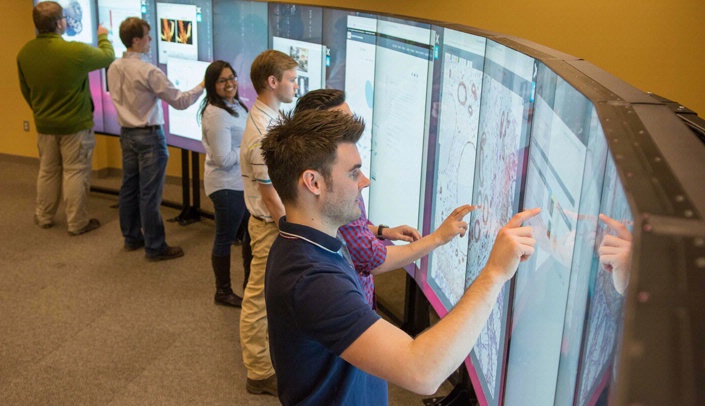The Simulation Interest Group of the Interprofessional Academy of Educators (IAE) will hold its February meeting at 8:30 a.m. Feb. 22. And, the group’s leaders stress, any faculty member interested in simulation is welcome to attend.
The simulation group is one of several areas of focus for the academy, and group co-chairs Connie Miller, Ph.D., and Patti Carstens are excited about the group’s mandate to explore effective use of simulation in education at UNMC.
The group is working to provide a framework for the educational use of simulation across the whole campus.
“There are so many ways we could move, and we’re going to have to be strategic and focused,” said Dr. Miller, who is an associate professor and assistant dean in the UNMC College of Nursing – Omaha Division.
The group has been discussing reflective thinking and debriefing in simulation, she added, an important educational part of simulation.
“Even though reflective thinking and debriefing is the last part of a simulation case, it’s where you put it all together,” said Carstens, who is manager, simulation research, development and assessment for iEXCEL (Interprofessional Experiential Center for Enduring Learning). The group is exploring debriefing strategies that will be helpful not only in simulation but across the educational spectrum.
“We were charged by the academy to come up with a year-end project that would benefit not just the academy, but all faculty,” Carstens said. “We felt that this would be the way to start.”
Both Dr. Miller and Carstens stressed that all faculty members, not simply members of the IAE, are welcome at the group’s meetings.
“Anyone interested in learning more about simulation and being involved in simulation certainly is welcome,” Carstens said.
“These meetings will give everybody an opportunity to help us shape simulation at UNMC,” Dr. Miller said.
In addition to simulation, the academy’s interest groups include:
- Curricular design, instructional methods, assessment and evaluation;
- Clinical teaching;
- ETC: Educational technology collaboration;
- Interprofessional education;
- Learning environment/wellness;
- Rural health care education; and
- Science of learning.
Each group is tasked with addressing a topic of educational interest on campus.
“The academy is extremely beneficial, and fulfills a need on campus,” Carstens said. “It’s important that the faculty feel a part of the process of the education program, and the academy provides an opportunity for that.”
“The interprofessional piece is huge,” Dr. Miller said. “It’s going to add so much depth to what we’re going to be able to accomplish.”
Interest group meetings are open to all faculty members. For information on other group meetings, contact Kristan Lester, 402-559-9244, at the IAE.
